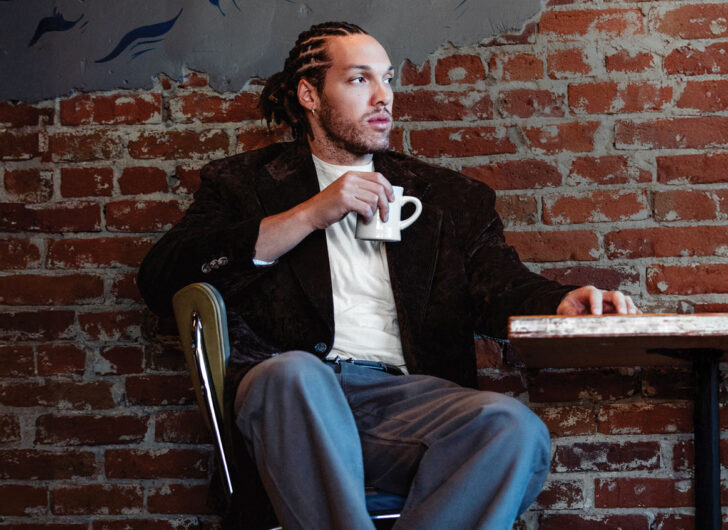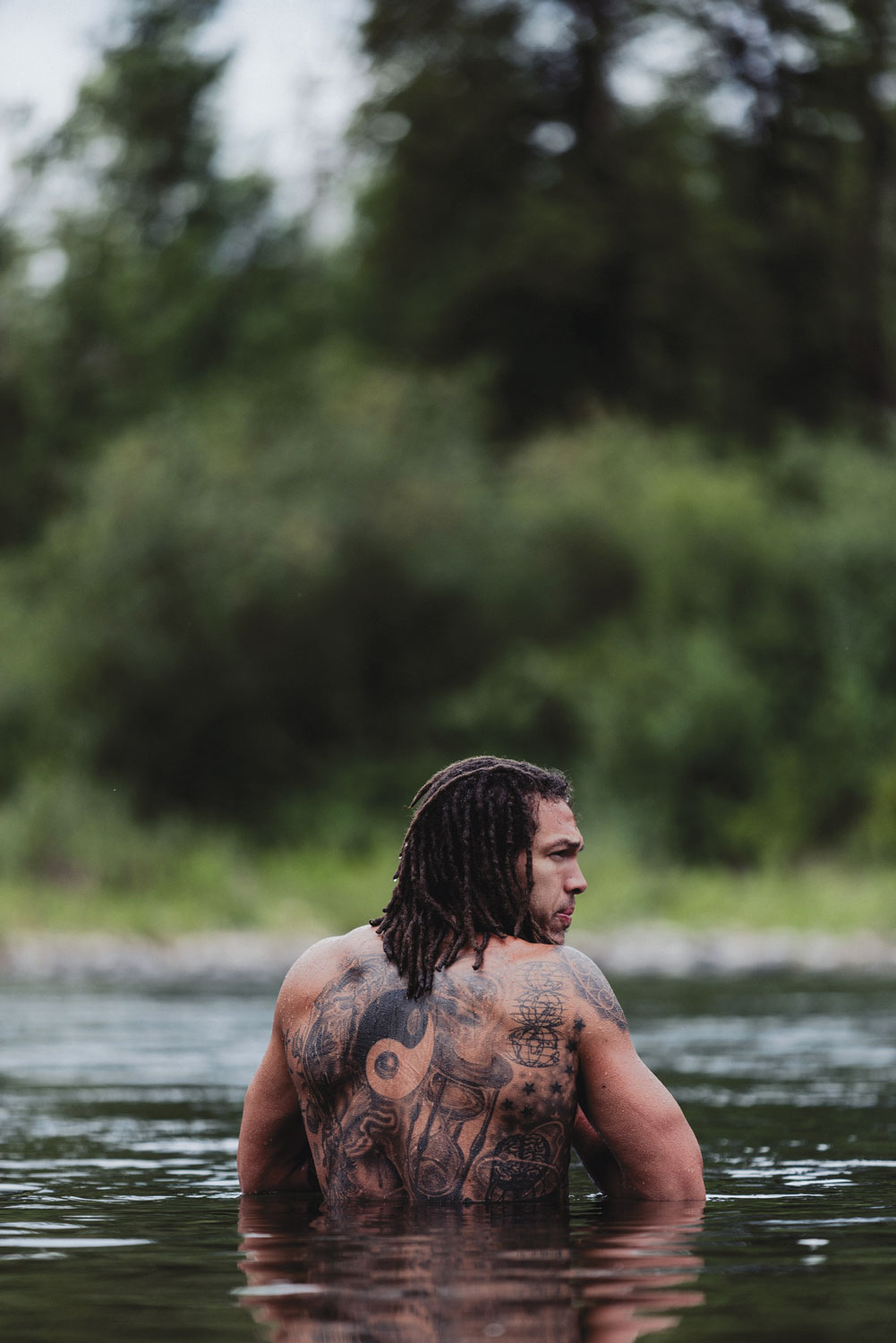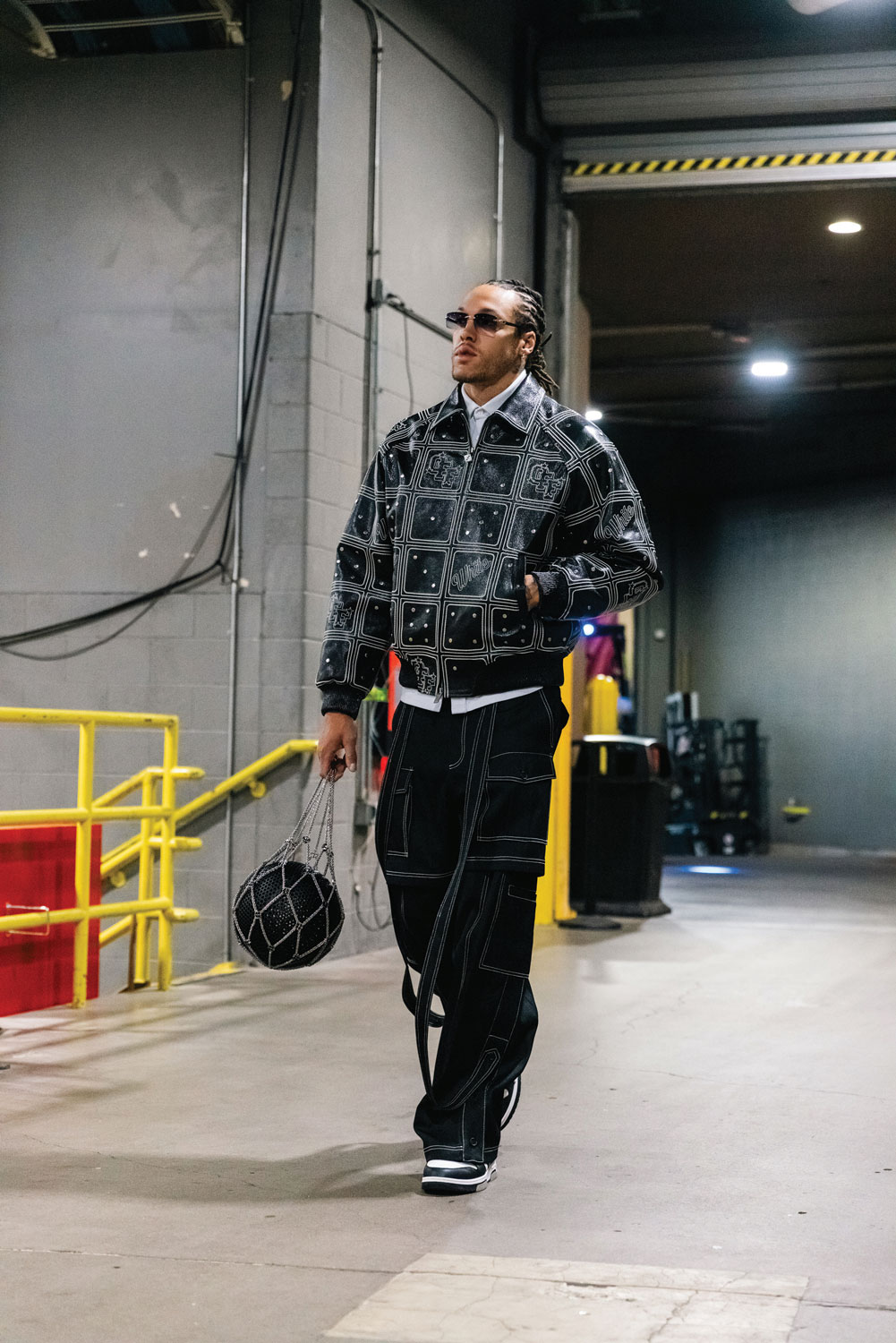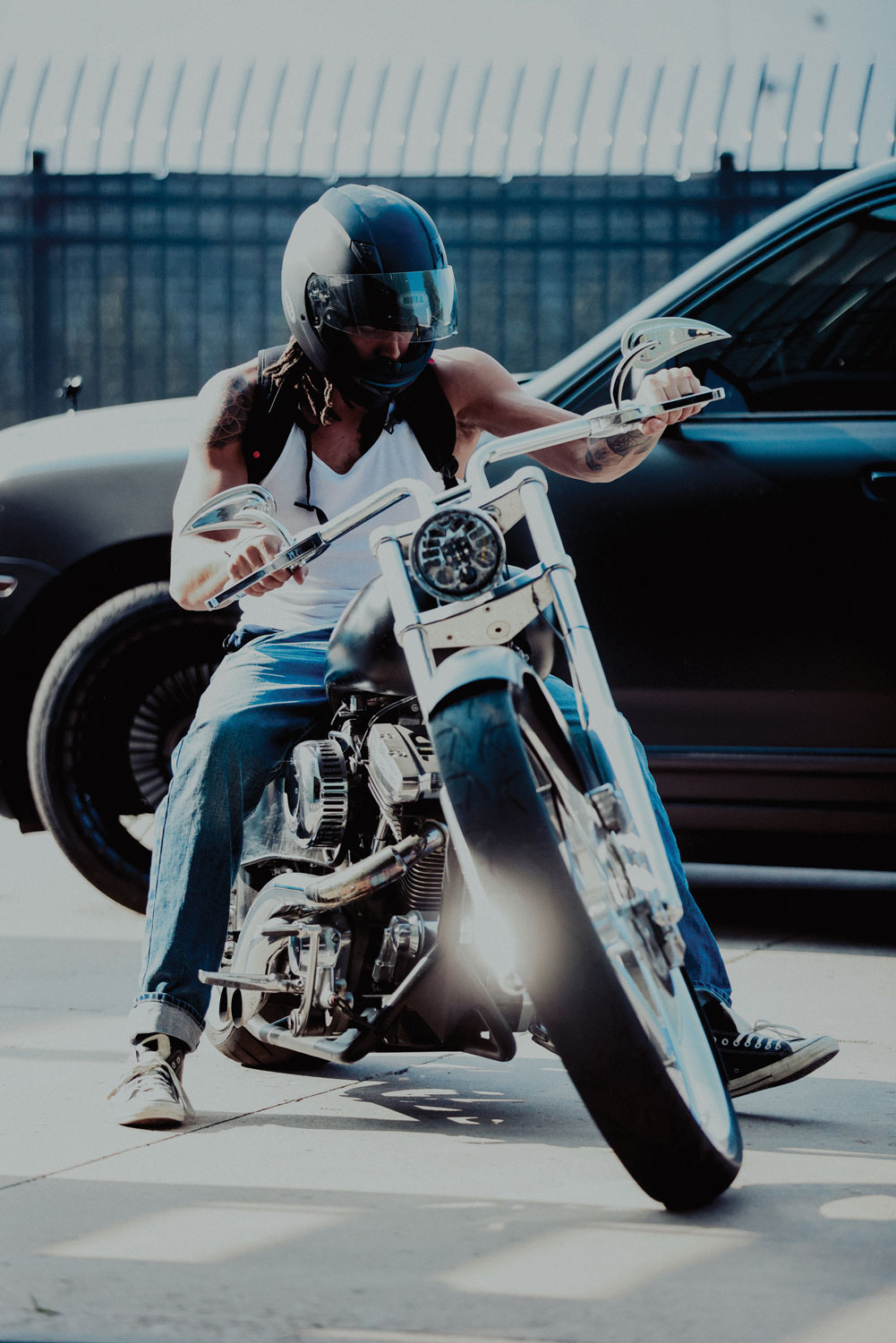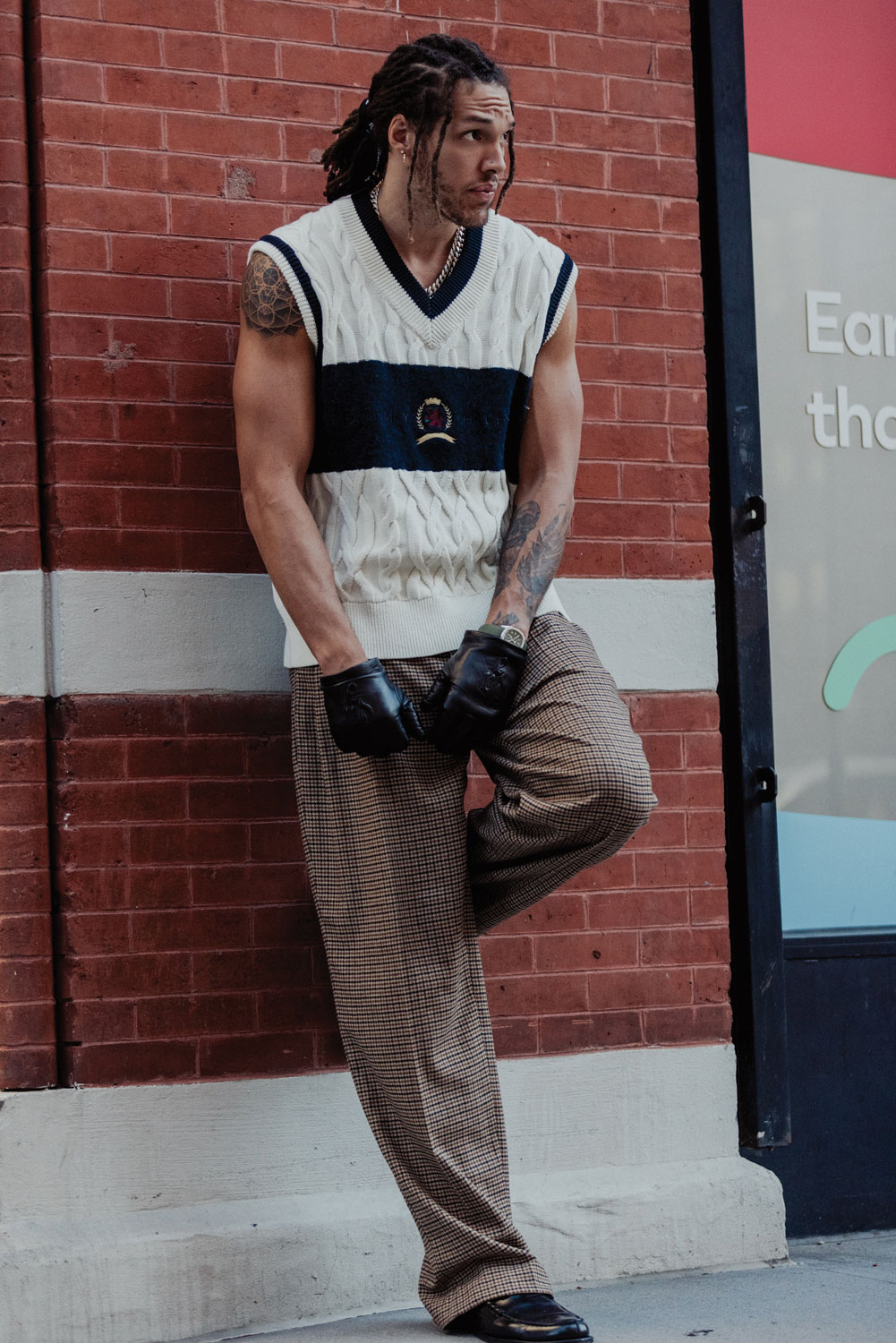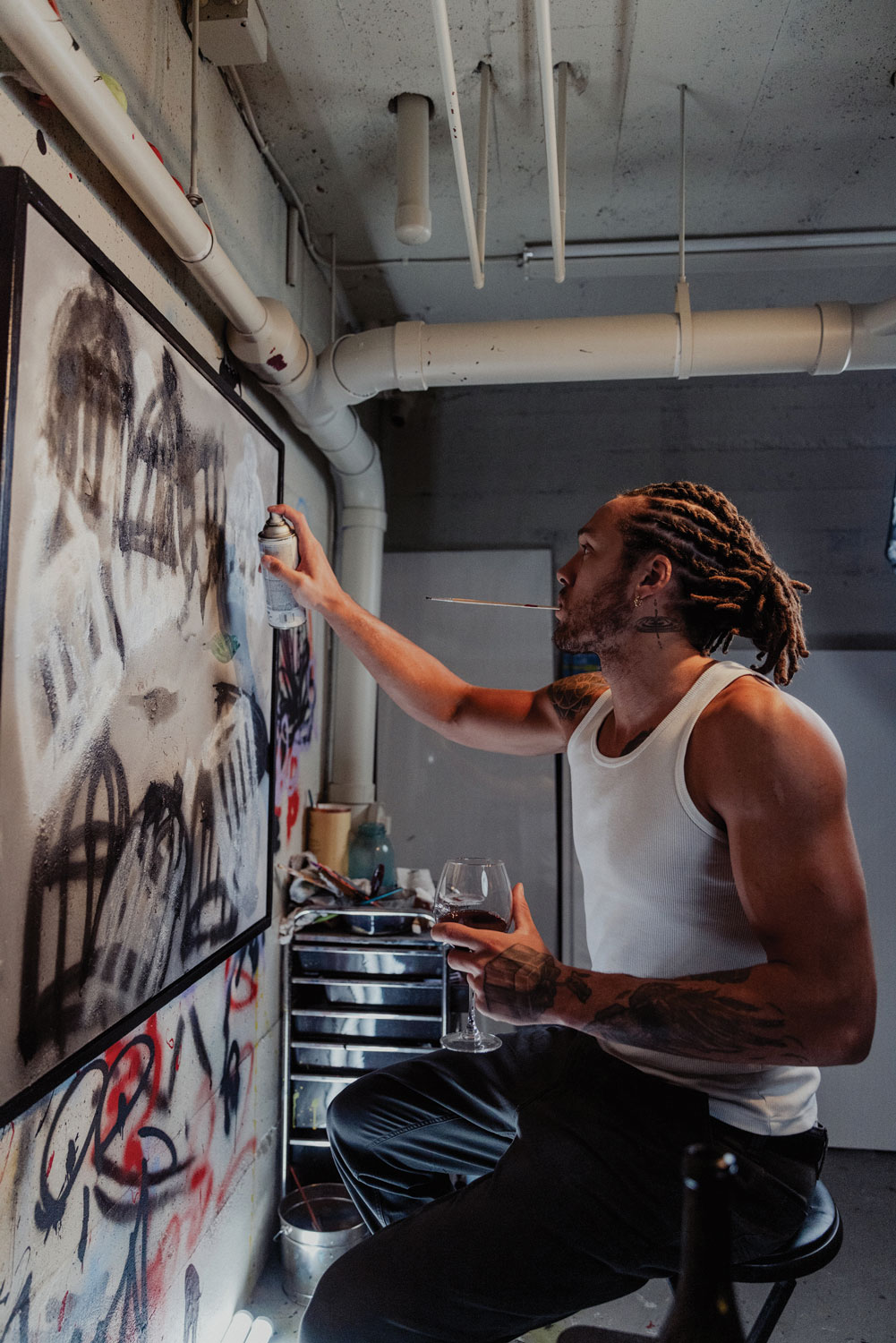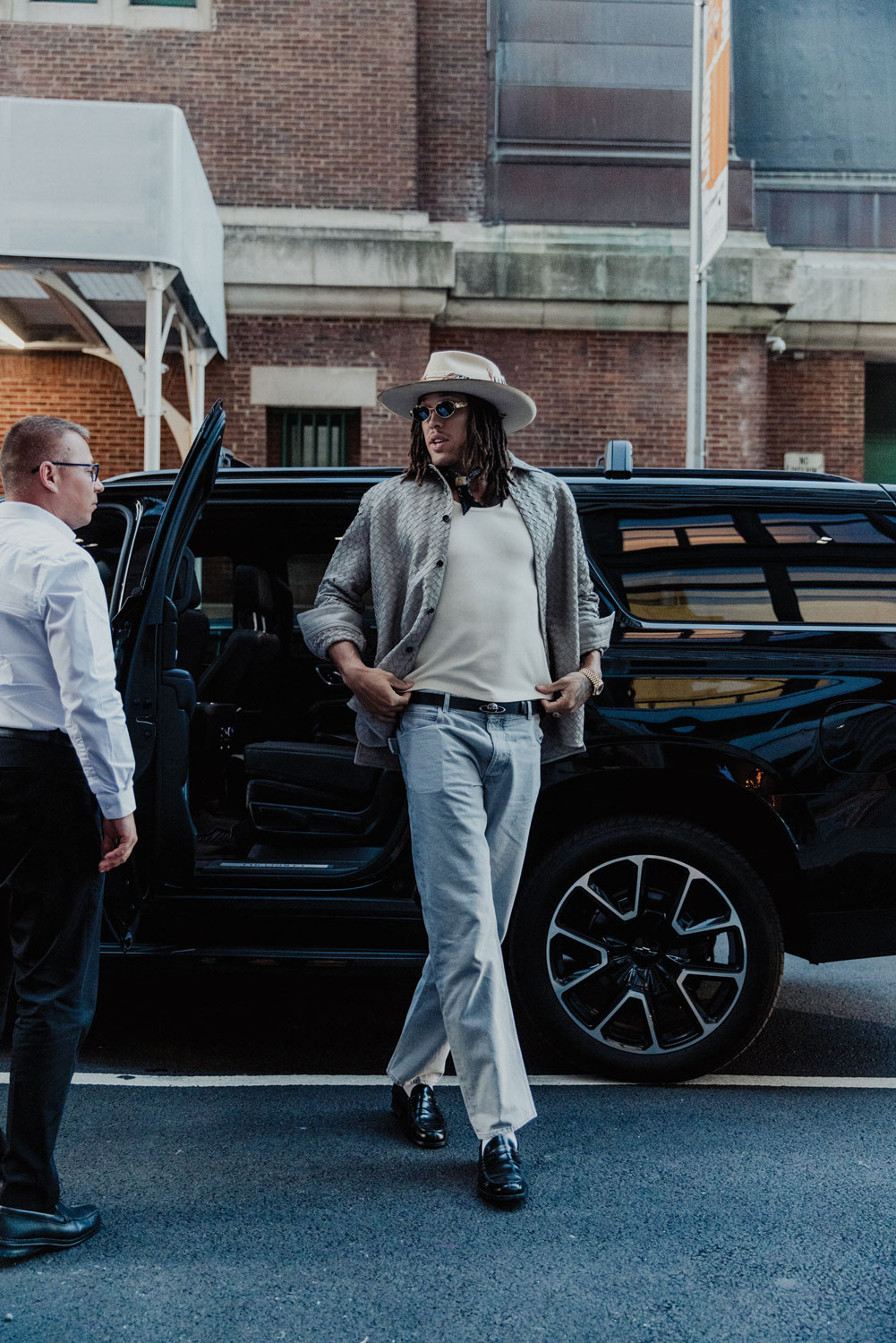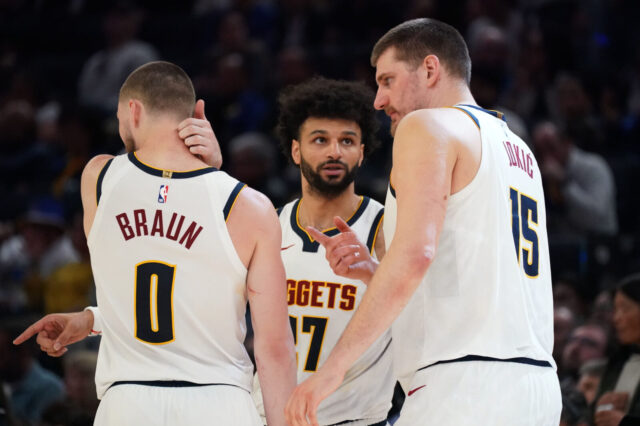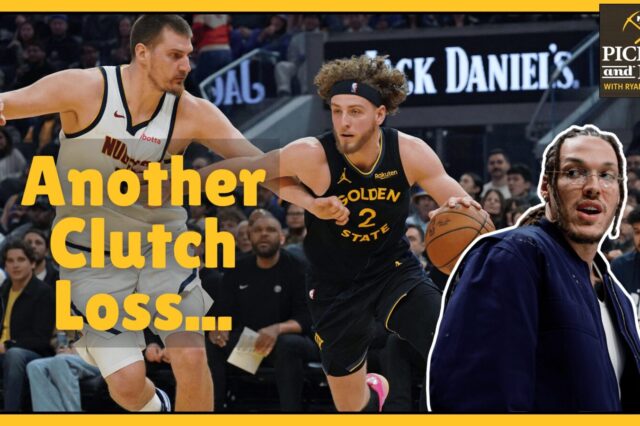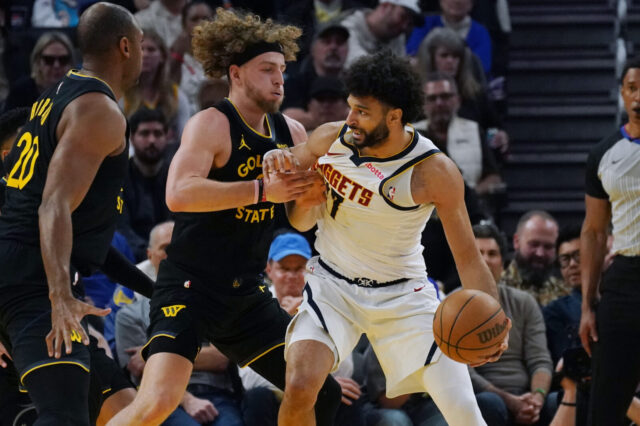Hey Ryan Petersen… If you’re reading this, please consider the following feature the unofficial cover letter and resumé for 6-foot-8, 235-pound, 29-year-old NBA power forward Aaron Gordon; known by his friends and fans as “AG.” Mr. Gordon is extremely interested in learning more about you and your fine company. Aaron’s skills include shooting, rebounding, passing, dunking at an advanced level, Microsoft Excel, Microsoft Word and painting. Aaron is currently employed by the Denver Nuggets, but can be flexible when it comes to the requirements as set forth in your program. Your consideration, Mr. Petersen, is greatly appreciated.
Relax, Nuggets fans.
Yes, it is that Aaron Gordon, but he’s not going anywhere. He’s not retiring. He doesn’t necessarily want a side hustle. He certainly doesn’t “need” the extra cash. Most importantly, he’s still got laser focus on winning another NBA title.
But every now and then, that Aaron Gordon – your favorite Aaron Gordon – likes to dream big and take a quick peek at life after basketball.
“I’ve been talking to Ryan, and hopefully I can get an internship, start working with him on logistics,” Gordon says. “That would be awesome. You know, I skipped that part of my professional career.”
It wasn’t as if Gordon was slacking off. In fact, he was earning money – plenty of it – at the tender age of 18. That’s when he was taken with the fourth-overall pick of the 2014 NBA Draft by the Orlando Magic. After just one year at the University of Arizona, where he was named the Pac-12 Freshman of the Year, Gordon’s first gig out of college was paying considerably more than what the grad-school grads, armed with a newly earned degree, were hoping for in that next bump up in pay.
Internship? More like thrown into the fire.
“It would be nice to start – I guess I would say, ‘at the bottom,’” Gordon says, thoughtfully considering the idea of a someday-career beyond basketball. “I wouldn’t want any special privileges or special treatments.”
This isn’t Fortune 500 Magazine, so if you aren’t familiar with Ryan Petersen, apologies for the late and informal introduction. Petersen is Founder and CEO of Flexport, a leader in global supply chain technology. In 2022, companies of all sizes – from emerging brands to Fortune 500s – used Flexport technology to move more than $26 billion of merchandise. Prior to starting Flexport, Petersen was the founder and CEO of ImportGenius, a premier provider of transaction data for the global trade industry. He earned a BA from UC Berkeley and an MBA from Columbia Business School.
Translation: Pretty high-level stuff.
Application: Gordon, who has begun to dabble in business, would love nothing more than to learn from someone who knows business like he knows basketball.
“Growing up, I was more creative than I was a businessman,” Gordon says. “As I get older now, I’m starting to see how they coincide.”
An internship with Flexport would fit what he considers to be the three most important objectives he examines when assessing any business or business opportunity: “Building a platform for people to be seen who wouldn’t other otherwise have a chance or opportunity… connectivity, as in connecting different people and different cultures to create something powerful and lasting… and longevity, finding business ventures that have incredible longevity.”
He remembers vividly the NBA’s Rookie Transition Program and hearing stories about life after basketball. For most, sadly, it wasn’t the same. Doors weren’t opening. The opportunities afforded to high-profile athletes no longer knocked. When a player’s NBA tenure stopped, so too did their prevalence. All of it struck a chord with Gordon, who, at the time, still couldn’t buy a beer if he wanted to.
His Bay Area upbringing exposed him to some of the greatest tech companies in the world – Apple, Facebook and Twitter. He recalls visiting a company called Y Combinator, an incubator for tech startup companies. His mother worked in the Silicon Valley; his dad was a teacher. It’s clear that beneath the monstrous power forward, there’s a foundation built on intelligence, creativity and a natural curiosity for businesses and what makes them work.
One of his first ventures was a cologne, which he admits “did not do very well.”
“That taught me a lot about business and entrepreneurship,” he says. “I just didn’t have the time. I didn’t have the know-how. But it’s okay. I judge a man not by his success, by his resiliency to failure; his ability to fail and continue to create and try again.
“I do things because I like to do them. And if other people happen to like them as well, that’s just a plus, you know?”
The cologne concept isn’t dead by any means; sales just took longer than originally projected. Gordon says he’ll go back to the drawing board and do things differently – and better – the second time around. Recently, he’s shown interest in the coffee game, partnering with Coda Coffee to source the beans for what will ultimately become his own coffee business. He’s dipping his toe into some bar and restaurant concepts, as well.
“These things are all in the works and they’re moving very slowly,” he says, “I don’t wanna flash fry ‘em; I wanna slow cook ‘em.”
Perhaps his best “business” success story takes place in the shoe industry. The tale starts with humble beginnings and ends with an anecdote that’s almost too good to be true.
As the contract for his first basketball shoe deal was about to expire, Gordon was trying to decide, like most NBA players, whether he’d be going with Nike or adidas. But his agent and business consultant came to him with an intriguing offer from a shoe company called 361, a sportswear company based out of China.
“I think they maybe had Kevin Love and Jimmer Fredette,” he vaguely recalls, “They liked what I did in the dunk contest. I don’t know what it is, but when I go over to China, it is just like a crazy amount of love over there.”
After some deliberation, he decided to give 361 a chance.
“They hit that first shoe out of the park,” he says of the collaboration. “The second shoe wasn’t so good, and we were honest with each other. And from then on, I think I’ve had the best shoe in game. I don’t think it’s close, as quiet as it’s kept. Everybody goes after the Nikes and the adidas and the Pumas, but if you look at my shoe and you put it up against anybody else’s shoe in the game right now, mine’s the best, hands down.”
He’s got a shoe he loves and, presumably, a healthy endorsement contract to match. But that’s not even the biggest success in the story.
After winning two MVP titles and an NBA Championship, Nuggets center Nikola Jokić found himself in similar shoes (pun intended). Despite the fact that Jokić was the greatest player on the planet, his agreement with Nike was coming to an end, and Phil Knight’s company had yet to create a “Joker-specific” shoe.
“Joke (pronounced ‘yoke’ – like the egg – by his teammates) was kind of going through the same thing,” Gordon says. “And I think he was thinking about Skechers.
Skechers?
“I was like, ‘Bro, just come to 361.”
Not long after, Gordon was in China meeting with 361 – “in Guangzhou, sitting around a hot pot” to be exact – the suits began asking what it might take to get the Joker on their roster. Gordon told them, “This is the number.”
Initially, they balked. But a few weeks later, the soon-to-be three-time MVP had a new shoe. Gordon was genuinely thrilled – “I want to see my guys get paid!” he says – but he laughs at the suggestion that he brokered the deal.
“I wouldn’t say I brokered the deal, because I didn’t get any money for it,” he says. No commission, just credit. Then again, on
second thought…
“I do get paid,” he says. “Joker rewards me with dimes.”
**
Especially in the NBA, there’s a direct correlation between the shoe game and the fashion world. The world’s best ballers like their shoes. And in the case of Aaron Gordon, he likes his fashion, too.
In September, Gordon was invited by Peter Paul Scott, a fashion icon in his own right, to attend New York Fashion Week. The experience was life-changing.
“It’s cracking,” says Gordon. “It’s such a connection of cultures, just the melting pot of styles from all around the world. The hustle of it is awesome. It really opened my eyes to the fashion industry.”
For now though, Gordon says fashion will remain a hobby and passion; it’s not an area to which he’ll gravitate in a business sense. Not yet, anyway.
He says he’s a blue-jeans, white-tee, Chuck Taylor kind of guy, and while that’s true, his Instagram offering suggests he can, and does, play at a higher level from time to time. His inspiration comes from his upbringing; he’s sure of that.
“It comes from California,” he says. “Cali is very fashion-forward. There’s steez out there – style with ease.
“I love to skate. I love to snowboard. I love to surf. There’s style that comes with that. And of course, I love to hoop. So when you mix those styles together, you get something really, really swaggy and comfortable. Then you put in some 1950s – almost like old-money meets new-money type style. That’s the swag, man. C’mon. You can’t beat that.”
He doesn’t take it so seriously though: “I’ve gone through some really, really, really bad outfits. You’ve got to be able to laugh about it.”
Art – and Gordon considers fashion to be a great form of art – is his escape.
He paints: “It’s a beautiful part of life that relaxes my mind and gets me away from basketball.”
He makes music. He says it’s the one thing that can still get him out of his comfort zone; making music gives him the kind of nervous butterflies that used to accompany the biggest of basketball games. It’s a rush that’s hard to find outside of his profession, but he’s found it in music.
He reads. A lot.
“Have you ever read The Art of Living?” he asks. “Really good. I think it really kind of sums up how I go about my life.”
He collects cars and considers them art, too. A baby blue 1970 Pontiac GTO is the one he says is his current favorite. He’s got motorcycles – a Ducati, a Triumph Rocket and a custom chopper he helped design.
But where form meets function best is inside Gordon’s mysterious warehouse.
“I think the mystique comes from the two separate establishments,” he explains. “One is a warehouse downtown, and one is a warehouse out in the Montbello/Commerce City area.”
His downtown location serves as a coffee shop by day and a speakeasy at night. It features an office and a hibachi table. This is a spot for hanging out, where teammates go after games or friends meet up for coffee. There’s a basketball hoop inside “so anyone can shoot hoops,” but it doesn’t rest on a full-size court, as has been hypothesized by fans.
“I think that’s where the confusion comes in. The warehouse in Montbello is built around a half-court,” he says, painting a clearer picture for those who have wondered. “I took basically just an industrial, e-commerce building and flipped the front half of it into an apartment loft. In the back half, it’s a warehouse with a half-court and everything is built around the half-court.”
That’s the spot where he actually lives, despite a common misconception that he also has a place in Cherry Hills. Not many people are invited to go there; the gym is his sanctuary, and more often than not, teammates – Jamal Murray, sometimes Justin Holiday – are the only ones who show up to hoop.
“When I tell you I sleep in the gym, like, I’m an actual gym rat,” he says. “I live in the gym.”
**
Regardless of how many there are, or what takes place in, Aaron Gordon’s warehouses, the significance of simply building them cannot be overstated. Who in their right mind would tackle such a project – not exactly a typical 4,000-square-foot home in a typically nice neighborhood with a typically good re-sale when the typical modern athlete gets cut, traded or retires – unless they plan to post up for a while?
Gordon does.
Gordon loves Denver. Gordon loves playing for the Nuggets.
Still, building warehouses in lieu of buying houses is an entirely different ordeal.
“I was reinvesting into the game that had given me so much,” Gordon says; he had just signed his first contract with Denver following the trade from Orlando. “Basketball had given me all this money. I was like, ‘Okay, let me double-down; let me live around this court; let me put everything I have back into this game. Let me double-down on it.”
The warehouse is where he was headed when one of the most iconic scenes in Denver sports history unfolded. The Denver Nuggets had just won their first-ever NBA Championship and Aaron Gordon was…
…in the street?
There he was, in the middle of Downtown Denver, ankles still taped, game shorts on, chains on, game jersey off. Traffic en route to the warehouse had hit a standstill and Gordon was over it. He jumped out of the car and a few celebrating fans did a double take.
Was that?
It was.
“It went from like eight people to 16. It started doubling,” Gordon recalls. “Got to 32. Got to 100 – probably got to 150 people around me. Then it just turned into a party in the streets.
“I’m with the chaos. I’m with a good time. I just wanted to celebrate with everybody in the city the best I could.”
It would have never happened if the Nuggets hadn’t won it all, something Gordon believes is possible once again.
“I truly believe we have the best team in the NBA when we’re all healthy and everybody’s on the floor,” he says. “I don’t think that there’s a better team out there.”
There’s always been a stigma about Denver as an NBA city. It’s been a flyover town, a place that high-profile players wouldn’t go, much less stay. If there’s any truth to that at all, Gordon is the exception.
“Denver is a really great city. My brother and his wife were looking at moving here before I even got here. It’s beautiful, it’s close to the West Coast, so my family can get to come see me from California. It’s close to the East Coast, so I can go check on my house in Orlando every once in a while. It feels right.”
As do the Nuggets.
“There’s pure hoops out here. The culture here is to come and play the best version of basketball that you can possibly play. If you’re looking for the lifestyle, the glitz and the glamour, you’re probably not focused on the main thing. And, out here, we like to keep the main thing the main thing.”
**
About that internship.
It might have to wait.
Even though Gordon is highly conscious of life after basketball, there are still titles to chase and the business world – at least at this exact moment – is not “the main thing.” Or, just maybe, it can get rolling after the season at hand. Gordon was supposed to meet with Petersen last summer. That was the plan, but it never happened. Tragedy struck and there were more pressing, more important, matters at hand.
On May 30, 2024, Aaron’s brother Drew was killed in a car accident. He was just 33 years old. He left behind a wife and three children.
To honor his late brother, Gordon switched his jersey number from 50 to 32, the number Drew wore during his playing days.
“I was attached to my brother at the hip, man. He had to have been annoyed with me, as all older brothers are,” Gordon says with a smile. “Little brothers are clingy, just tagging along, I was a tag on his shirt. I had all his hand-me-down clothes, you know, so I was rocking baggy clothes because of him. I skated because of him, snowboarded because of him. He taught me how to talk to women.
“He pitched me the sauce, man. He gave me the recipe. I’m forever grateful for him. I’m just doing everything I can to pay him back by taking care of our three boys.”
View this post on Instagram
If Drew’s children have an act to follow – tough or otherwise – Aaron seems like an ideal choice. Whether they make it as athletes or find inspiration from his business sense or appreciation for the arts, Uncle Aaron is a role model who takes his role seriously. For purposes of this story, he was a no-show for the originally scheduled interview; that’s not because he was being aloof, another famous athlete big leaguing the writer who was awaiting his call. He was just being a good uncle.
“Man, I am so sorry,” Gordon said with sincerity when the phone finally rang. “I was at my nephew’s basketball game and it ran late.”
His nephews will have a standing invitation to the warehouse – either of them – but he’s talking about buying a house so he can live with them full-time. A house, he believes, might provide a more normal, stable environment for them. The basketball court will always be there when he needs it. Gordon sets his alarm each night so that he can get up and do the work required of an elite athlete; his occupation affords him the opportunity to raise his brother’s kids in the best ways imaginable. He’s got interests and passions and a great job, but nothing compares to being their uncle.
When he was younger, he used to take work home with him. It took him four or five seasons to separate his basketball life and everything else; now in his 11th NBA season, he’s finding his rhythm, doing his job at an incredibly high level, while acknowledging that basketball won’t last forever.
“Everybody has a day job; that’s really what gets me out of bed,” he says. “But I guess regardless of that, these days, I think it’s just doing what needs to be done. It’s minding your P’s and Q’s. It’s making sure that I’m solid like a rock – solid for my friends, my family and my teammates. I think that’s really what makes me tick.”
